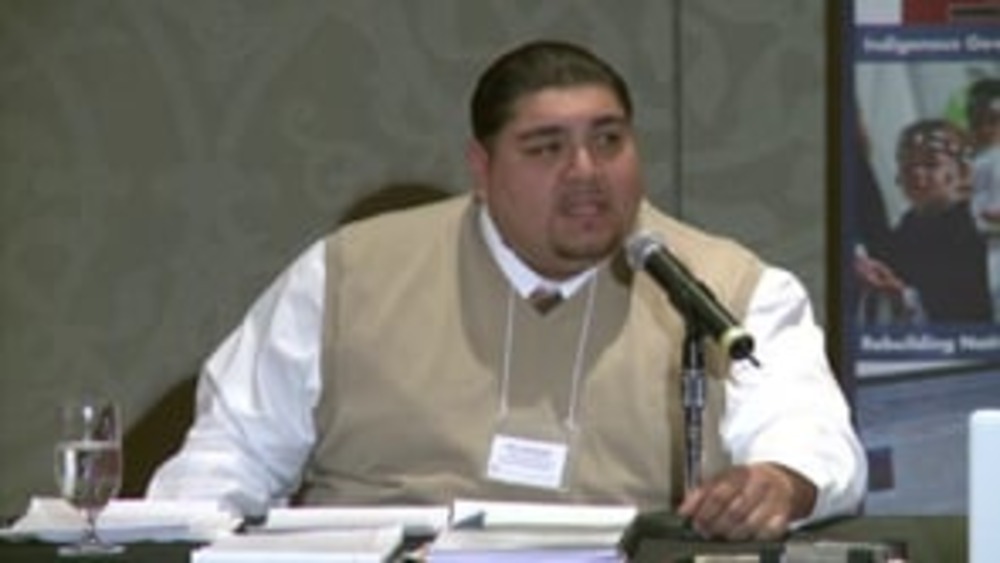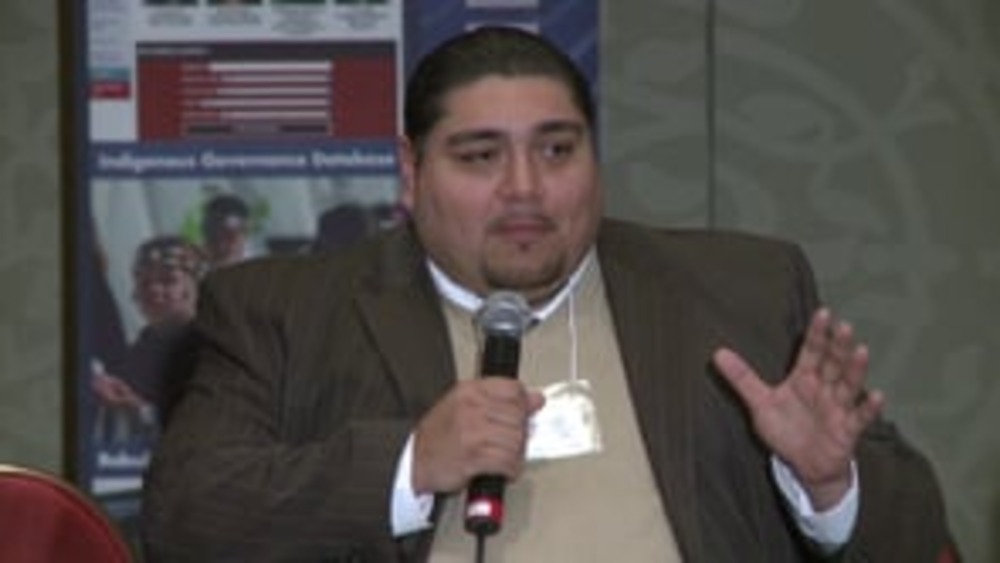Indigenous Governance Database
Joni Theobald
Thumbnail

Ruben Santiesteban and Joni Theobald: Choosing Our Leaders and Maintain Quality Leadership: The Lac du Flambeau Band of Lake Superior Chippewa Indians
Ruben Santiesteban and Joni Theobald of the Lac du Flambeau Band of Lake Superior Chippewa Indians provide an overview of how Lac du Flambeau developed a new approach to cultivating and then selecting quality leaders to lead the Band to a brighter future.
Thumbnail

Constitutions and Constitutional Reform - Day 2 (Q&A)
Presenters from the second day of NNI's "Tribal Constitutions" seminar gather to field questions from seminar participants on a variety of topics ranging from citizen education and engagement to the role off-reservation citizens can and should play in a Native nation's present and future.
